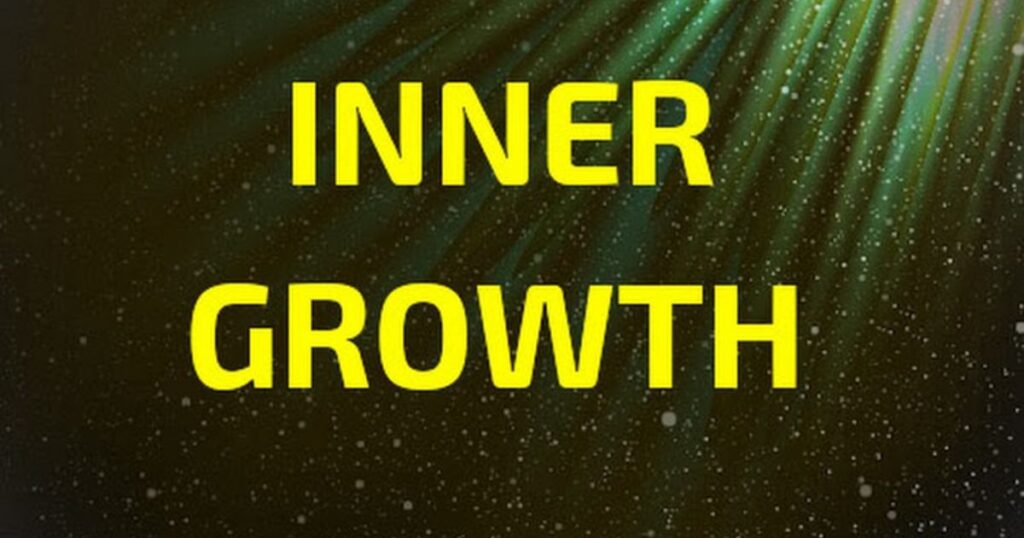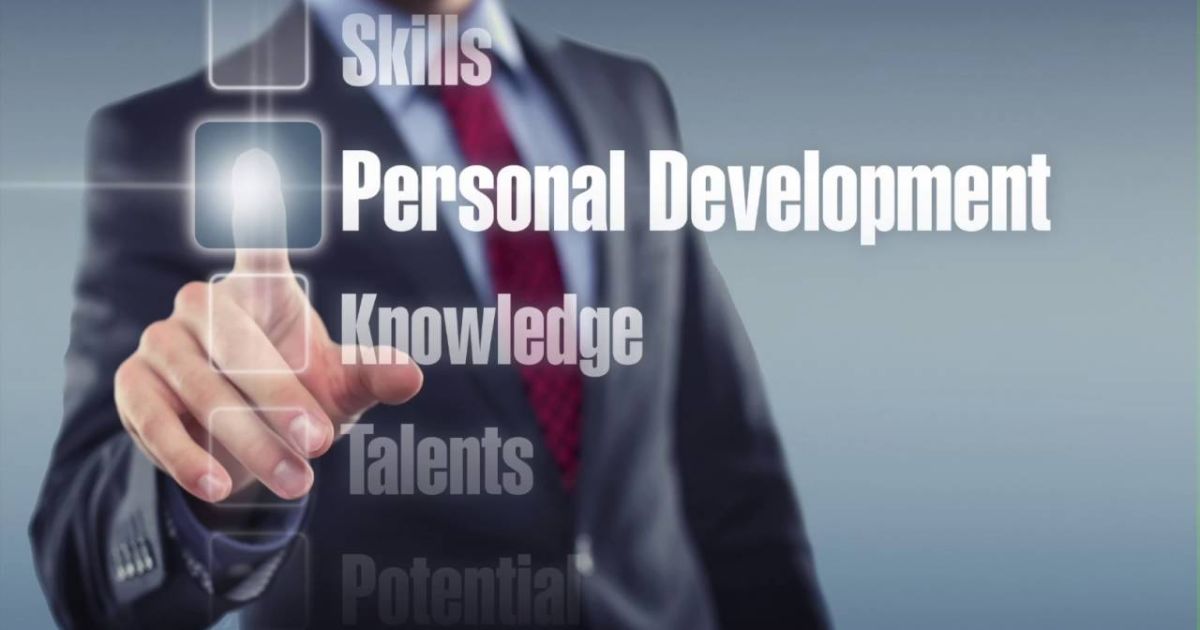Want to unlock your full potential and live a more fulfilling life? Personal development is the key. It’s all about growing your skills, habits, and mindset every single day. When you focus on personal development, you improve your emotions, thoughts, and abilities, giving you the strength to overcome challenges and smash your goals.
No two journeys in personal development are the same. Some dive into self-improvement by learning new skills or building positive habits. Others explore inner growth and emotional resilience. Whatever path you choose, personal development is a lifelong adventure. Small, consistent steps can lead to big changes. Embracing this journey opens doors to new opportunities and a happier, more successful you. Ready to start.
Other Ways to Say “Personal Development”
You can say self-improvement, self-growth, or personal progress when referring to overall betterment. For specific areas, use skill enhancement, character building, or inner growth. Terms like self-actualization or personal mastery bring a deeper, more philosophical tone to the conversation, especially when discussing long-term goals or life purpose.
1. Self-Improvement
Example: “She’s dedicated to self-improvement, always seeking new ways to expand her skills and knowledge.”
Meaning: Self-improvement refers to the ongoing process of enhancing one’s abilities, habits, and overall well-being. It involves conscious efforts to become better personally and professionally through learning and growth.
Usage: Use this term in general contexts when describing someone focused on bettering themselves across various aspects of life, from health and mindset to career and communication.
2. Self-Growth
Example: “His self-growth journey began when he started journaling and reflecting daily.”
Meaning: Self-growth centers on internal development, including emotional maturity, clarity of values, and personal insight. It’s often associated with becoming a more aware, balanced, and fulfilled person.
Usage: Ideal when emphasizing inward transformation, emotional intelligence, or psychological progress over time.
3. Self-Enhancement
Example: “The workshop was geared toward self-enhancement, covering tools for boosting confidence and communication.”
Meaning: Self-enhancement involves deliberate actions taken to improve one’s self-image, confidence, and personal capabilities. It combines emotional awareness and skill-building to present oneself more effectively.
Usage: Best used in professional or personal development contexts that emphasize boosting one’s potential and performance.
4. Personal Progress
Example: “Tracking your personal progress helps you stay motivated and recognize how far you’ve come.”
Meaning: Personal progress refers to measurable or observable improvements in one’s behavior, habits, mindset, or accomplishments. It’s a sign of movement forward in any area of life.
Usage: Use this phrase when highlighting growth over time, especially in goal-setting, coaching, or self-assessment situations.
5. Self-Actualization
Example: “She believes that creativity is key to her self-actualization and fulfillment.”
Meaning: Self-actualization is the realization of one’s full potential, a concept rooted in Maslow’s hierarchy of needs. It’s about becoming the best version of yourself by aligning actions with values and inner purpose.
Usage: Ideal for philosophical or deep personal development discussions, especially when talking about purpose, authenticity, or peak human experience.
6. Skill Enhancement
Example: “He signed up for weekly coaching to focus on skill enhancement in leadership and public speaking.”
Meaning: Skill enhancement involves targeted learning and practice aimed at improving specific competencies, whether technical, interpersonal, or cognitive.
Usage: Often used in professional or educational settings where improving job-related or life skills is the goal.
7. Personal Enlightenment
Example: “Traveling alone sparked a wave of personal enlightenment that shifted her worldview entirely.”
Meaning: Personal enlightenment is the awakening of deeper understanding, often through introspection, life experiences, or spiritual reflection. It includes discovering one’s truth and gaining clarity.
Usage: Use this term in contexts that touch on spiritual growth, wisdom, or transformative realizations about life and self.
8. Character Building
Example: “Volunteering in tough conditions was a character-building experience that changed his perspective.”
Meaning: Character building refers to experiences that strengthen moral values, discipline, empathy, and resilience. It’s about developing integrity and emotional fortitude.
Usage: Great for describing lessons learned through challenges, especially in youth programs, education, or life coaching.
Read More: 12 Other Ways to Say “Power Trip”
9. Self-Cultivation
Example: “She treats meditation and journaling as daily acts of self-cultivation.”
Meaning: Self-cultivation is a reflective and intentional process of nurturing one’s mind, values, and behavior. It’s often tied to Eastern philosophies and emphasizes lifelong refinement.
Usage: Works well in contexts that focus on discipline, introspection, and long-term internal growth.
10. Personal Mastery
Example: “Through years of practice and self-reflection, he achieved personal mastery in his field.”
Meaning: Personal mastery is the state of deep self-awareness and control over one’s thoughts, actions, and emotions. It’s marked by intentional living and high levels of self-discipline.
Usage: Ideal for leadership development, high-performance coaching, or any context focused on self-directed excellence.
11. Inner Growth

Example: “Her inner growth was evident in how calmly she handled the stressful situation.”
Meaning: Inner growth reflects the emotional and spiritual changes that help a person mature. It includes becoming more empathetic, balanced, and in tune with one’s emotions.
Usage: Best used when describing emotional resilience, spiritual development, or maturing through reflection and experience.
12. Lifelong Learning
Example: “He embraced lifelong learning by enrolling in online courses even after retirement.”
Meaning: Lifelong learning is the ongoing, voluntary pursuit of knowledge for personal or professional reasons. It reflects a growth mindset and commitment to continuous improvement.
Usage: Use this term in educational, career, or personal development settings to stress the importance of staying curious and adaptive.
When to Use Different Expressions for “Personal Development”
Different expressions for personal development suit different contexts. For example, use “self-improvement” in casual or motivational settings, and “professional development” in work-related environments. Terms like “self-actualization” or “personal enlightenment” work best in spiritual or philosophical discussions. Choosing the right phrase helps your message resonate with your audience.
In the Realm of Holistic Growth
Holistic growth is about more than just checking off goals or collecting achievements. It’s a balanced pursuit of emotional growth, intellectual development, spiritual growth, and physical well-being. When someone engages in self-improvement, they’re not just upgrading one skill, they’re aligning their entire life toward deeper fulfillment and personal transformation. From journaling and self-reflection to wellness practices and career planning, holistic development ensures no part of the self is left behind.
Those who embrace holistic growth often turn to introspection, self-awareness practices, and purpose-driven routines to create meaningful change. Whether through counseling, coaching, or quiet moments of meditation, each action supports a larger journey toward self-actualization. It’s about growing into the most integrated version of yourself, mind, body, and spirit, where personal mastery and inner growth become natural outcomes of living with intention.
For Skill and Career Enhancement
Skill enhancement and career development are at the heart of modern self-growth. In a fast-moving world, investing in self-directed learning and continuous upskilling is not just optional, it’s essential. From attending professional training and workshops to learning strategies through online platforms like MindTools or Medium, every step strengthens one’s competitive edge. Self-cultivation in this context means actively choosing to refine talents and build a personal toolkit for future success.
Those seeking personal progress often set clear personal goals tied to their professional aspirations. They practice goal setting, engage in skill-building exercises, and track milestones to measure their personal development. Over time, this commitment to growth mindset and self-betterment leads to greater confidence, adaptability, and long-term career fulfillment. It’s not about being the best in the room, it’s about becoming better than you were yesterday.
Pursuing Life’s Ultimate Potential
Self-actualization sits at the pinnacle of personal enlightenment, a realization of one’s deepest purpose and inner potential. This journey isn’t about perfection; it’s about alignment. When your goals, values, and daily actions begin to harmonize, self-realization takes shape. You begin to live a purpose-driven life, guided by integrity, courage, and wisdom rather than external validation. This is where personal mastery begins.
Those who pursue their ultimate potential often engage in self-exploration, reflective exercises, and spiritual growth practices. Whether they draw from Maslow’s hierarchy of needs or their own lived experiences, their path involves courage, self-discipline, and deep emotional intelligence. It’s a life of intentional choices, driven by fulfillment rather than fear. In the end, self-actualization isn’t a destination, it’s a lifelong unfolding of who you truly are.
Embracing Continuous Learning
Lifelong learning is more than a habit, it’s a mindset. It reflects an individual’s desire to grow intellectually, emotionally, and professionally over time. Whether you’re studying self-help books, attending development workshops, or simply exploring new ideas through self-study, every experience contributes to self-betterment. This ongoing curiosity helps individuals build resilience, self-efficacy, and a strong foundation for personal transformation.
Incorporating continuous learning into your routine can involve everything from volunteering and coaching sessions to introspection and personal rituals. These experiences shape your character, expand your knowledge, and deepen your emotional intelligence. Ultimately, embracing learning as a daily practice empowers you to adapt, evolve, and thrive, no matter where life takes you.
Fostering Inner and Emotional Growth
True personal development starts from within. Emotional growth and psychological development create the foundation for resilience, empathy, and meaningful relationships. Practices like journaling, introspection, and mindfulness allow individuals to deepen self-awareness and move through challenges with emotional intelligence. This kind of inner growth leads to clearer decision-making and more intentional living.
Self-discovery, self-reflection, and mindset shifts are powerful tools in the journey toward emotional maturity. Whether through therapy, coaching, or silent contemplation, these practices help people better understand their triggers, values, and motivations. Over time, emotional growth becomes a quiet strength, guiding personal choices and enabling deeper connections with others. It’s the type of self-mastery that can’t be seen but is always felt.
Conclusion
Personal development is a powerful journey that anyone can start. It helps you grow your skills, mindset, and habits. When you focus on personal development, you build confidence and face life’s challenges better. This growth leads to a happier and more successful life. Remember, personal development takes time. It happens step by step, with small actions each day.
Keep working on personal development by practicing self-improvement and learning new things. Use tools like journaling, meditation, or coaching to support your growth. Embrace emotional growth and skill enhancement to reach your goals. Personal development is not just about changing; it’s about becoming the best version of yourself. Stay patient, stay motivated, and enjoy the process. The more you invest in personal development, the more your life will improve. Keep growing, and watch how your world changes for the better.

Grammerroot is your trusted source for mastering English grammar and language skills. From simple rules to advanced tips, we help learners build strong foundations through easy-to-understand content. Learn smart, learn right — only at Grammer Root.




